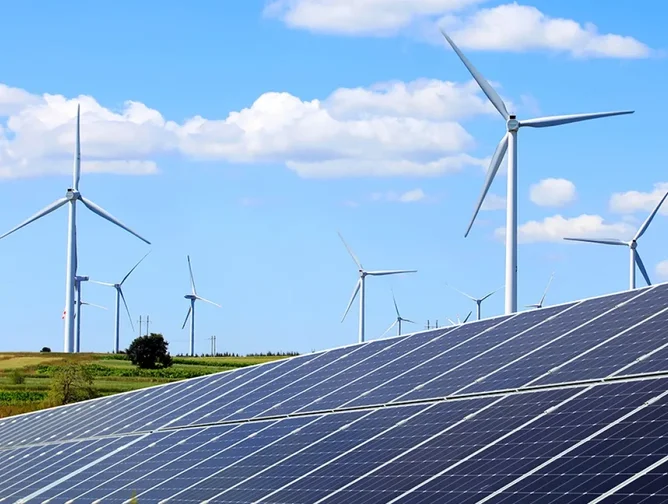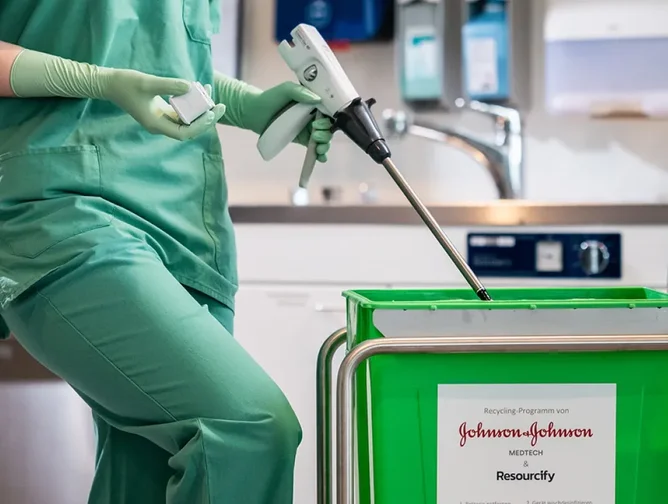April 28, 2024
Pharmaceutical leader Johnson & Johnson is adopting a collaborative strategy to address today’s environmental challenges. By expanding its supplier sustainability program, the company demonstrates a strong commitment to combatting climate change.
Johnson & Johnson has implemented ongoing, proactive measures to reduce greenhouse gas emissions and encourages its suppliers to follow suit. Additionally, the company collaborates with like-minded partners to advocate for environmental health equity.
Key goals include transitioning to 100% renewable electricity by 2025 and achieving a 44% reduction in emissions by 2030. Furthermore, Johnson & Johnson aims for 80% of its suppliers to establish science-based targets by 2028 and strives for net-zero emissions throughout its value chain by 2045.
Advancing toward net zero emissions, Johnson & Johnson is swiftly progressing towards its sustainability targets. Currently, 65% of its global electricity is sourced from renewable sources, with significant investments in renewable energy infrastructure worldwide.
The company has established over 50 on-site renewable energy systems in 20 countries and secured contracts for off-site renewable electricity procurement. Notably, Johnson & Johnson has finalized agreements in the US, Canada, and Brazil to achieve 100% renewable electricity for its operations in these regions.
In Europe, the company is already sourcing 100% of its electricity from renewable sources across twelve countries, including through the development of wind farms and solar fields in Spain.
Furthermore, Johnson & Johnson’s CO2 Capital Relief Program allocates funds for energy efficiency initiatives at its manufacturing and R&D sites, resulting in significant emissions reductions. Geothermal energy is also being leveraged, with innovative projects such as deep wells for heating and cooling at the Janssen campus in Belgium and a closed-loop geothermal system at the Ethicon campus in Ohio, contributing to emissions reduction efforts.

Johnson & Johnson is laser-focused on achieving net zero. Picture: Johnson & Johnson
Advocating for environmental sustainability throughout its value chain, Johnson & Johnson adopts a collaborative approach to address contemporary environmental challenges.
With a steadfast commitment to enhancing environmental and social standards across its network, the Johnson & Johnson Supplier Sustainability Program aims to encompass all suppliers by 2025, fostering increased engagement and cooperation on shared environmental and social objectives.
In 2021, Johnson & Johnson partnered with nine leading pharmaceutical industry peers to launch Energize, a pioneering initiative focused on decarbonizing the global pharmaceutical supply chain. This program educates suppliers on renewable procurement opportunities and facilitates their transition to renewable energy, with hundreds of suppliers already enrolled.
Building on this momentum, the Activate collaboration was established in 2022, uniting five pharmaceutical companies to support active pharmaceutical ingredient (API) suppliers in their decarbonization endeavors.
For years, Johnson & Johnson has actively participated in coalitions advocating for a low-carbon economy and climate change mitigation on a large scale. Engagements such as the Clean Energy Buyers Alliance and the Climate Leadership Council enable the exchange of best practices and the promotion of renewable energy adoption and market-based climate policies.
Aligned with the goals of the Paris Climate Agreement, Johnson & Johnson contributes to initiatives like the ‘We Are Still In/America Is All In’ campaign, demonstrating its commitment to ambitious emissions reduction targets.

